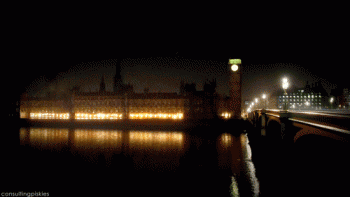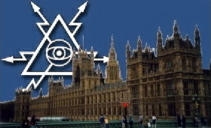We are developing the social individualist meta-context for the future. From the very serious to the extremely frivolous... lets see what is on the mind of the Samizdata people.
Samizdata, derived from Samizdat /n. - a system of clandestine publication of banned literature in the USSR [Russ.,= self-publishing house]
|
Tory MP John Redwood on the decision last week of the High Court to rule that MPs must be allowed to debate the case for triggering Article 50 of the Lisbon Treaty before the UK can start to quit the European Union:
As the judges wished to trespass into this territory they should have acquainted themselves better with Parliamentary procedure and the recent Parliamentary timetable. They would have discovered that Parliament has had plenty of allotted time for debate and questions on Article 50 and general Brexit in both government and Opposition time. They would have realised that if the Commons wanted a vote on Article 50 the Opposition could at any time table a motion to require one in Opposition time. It could formally ask the government to table one, though the government might reply they should table one themselves. The fact it has not done so implies that the Commons accepts an Article 50 letter will be sent. Indeed, many Labour MPs have confirmed they agree with sending a letter, as does the government side.
Whatever else one might conclude about the issue of the judges’ involvement in the process – I am told that their judgement statement is well worth reading – I think Redwood has it exactly right here. MPs should not expect judges to do their work for them – if they had wanted to force the issue, they had in their power to do so. That they haven’t is, I suspect, based either on laziness and cowardice, or a fear on the part of the Labour MPs that a no-confidence vote and possible early election will wipe Labour out (oh happy day); the most enthusiastic Remainer Tories, such as Ken Clarke, may fear losing their seats, at least if they are in marginal ones. I also think that our membership of the EU, and the gradual erosion of Parliament and the quality of people entering it, means that MPs lack the kind of backbone that legislators of earlier ages might have had. Indeed, one of the reasons I voted for Brexit (even though I am very different in my views from the more nationalist inclined Brexiteers) is my hope that MPs no longer can hide behind the skirts of courts, either in Brussels or here, and have to start taking direct responsibility for the laws that affect this country. With ownership comes responsibility, and hopefully, an improvement in the product.
“Believe you me, if the people in this country think they’re going to be cheated, they’re going to be betrayed, then we will see political anger the likes of which none of us in our lifetimes have ever witnessed in this country.
[…]
“I heard you talking to Gina Miller earlier about the nasty things that have been said about her. Believe you me, I’ve had years of this, I’ve had years of hate mobs – taxpayer-funded hate mobs – chasing me around Britain.
“The temperature of this is very, very high.
“Now, I’m going to say to everybody watching this who was on the Brexit side – let’s try and get even, let’s have peaceful protests and let’s make sure in any form of election we don’t support people who want to overturn this process.”
– Nigel Farage
Those who make peaceful revolution impossible make violent revolution inevitable.
– John F. Kennedy
A story in today’s Sunday Times provides a practical lesson in how our freedom is being whittled away. The story is paywalled, but I will quote the most relevant part:
Adoption banned in ‘gay parents’ row
A husband and wife have been prevented from trying to adopt their two young foster children after the couple said a child needed a “mummy and daddy” rather than gay parents.
Social services said it would not consider the couple’s request to adopt the children because they had aired “concerning” opinions about the possibility of a same-sex couple being chosen as the adoptive parents instead.
Campaigners said the treatment of the couple was disturbing because it meant people could be penalised by the authorities simply for expressing support for traditional parenting.
Andrea Williams, chief executive of the Christian Legal Centre, which is supporting them, said: “This couple’s viewpoint is lawful and mainstream.”
There are several matters which I could address in this post but will not. The priority placed by the social workers on the interests of two formerly neglected children in finally having a stable home, for one. Or the fact that we now have “lawful” opinions in Britain, which is another way of saying that we now have opinions that are unlawful.
I will content myself with saying that this is the most effective control technique currently in use. You are still free to express dissent. It is just that if you exercise your freedom to express your dissent you and yours had better give up on wanting to do anything else with your life which requires the goodwill of officials, a category which grows ever larger. Our rulers are cannier than those of the Soviet Union. They have dispensed with the labour camps but kept the strategy that actually worked. As Andrei Sakharov said,
“Everyone wants to have a job, be married, have children, be happy, but dissidents must be prepared to see their lives destroyed and those dear to them hurt. When I look at my situation and my family’s situation and that of my country, I realize that things are getting steadily worse.”
It is often said that Guy Fawkes was the only man to ever enter Parliament with honest intentions…
But to mix the metaphors, this year more that most.

This argument is illogical and does not hold water. There are many acts which the government can carry out on the international plane under the European treaties which have the effect of altering UK domestic law, and in doing so either confer rights on people or deprive them of rights. Whenever the UK representative on the Council of Ministers joins in passing into law a directly applicable EU Regulation then the Crown in using the prerogative power to alter internal UK law without that alteration of the law going through Parliament. This is simply a consequence of the direct effect machinery of the 1972 Act.
So why should it be OK to have “more Europe” through exercise of the prerogative power, but wrong to have “less Europe” as a result of Article 50 being invoked and the direct effect parts of EU law ceasing to apply within the UK? Nothing in the wording of the 1972 Act supports such a distinction.
– Martin Howe QC, Thomas Sharpe QC, Clive Thorne, Francis Hoar from Lawyers for Britain
Second, anyone who thinks MPs will reject Article 50 in such a vote is deluding themselves. The overwhelming majority of the Parliamentary Conservative Party now wants to get on with implementing the outcome of the referendum, regardless of which side they were on in the campaign. A pleasantly surprising number of Labour MPs have also taken on board the message from their Leave-voting constituencies. Having gone through the unpleasant experience of being at loggerheads with their voters on the doorstep, they rightly don’t want to defy them now they have spoken. The referendum may have been advisory, but its advice was clear – and when seen in pseudo-First Past The Post terms, ie in terms of MPs’ constituencies, Leave won a two thirds majority. Ultimately, de facto sovereignty lies with the electorate, and politicians value their seats.
– Mark Wallace
The High Court has ruled that the government must get Parliamentary approval before it triggers Article 50. So we are a three-line-whip away from triggering Article 50. Big deal.

…it is a symbol that the bearer has made a donation to the Royal British Legion’s Haig Fund.
I thought it might be worth pointing that out bearing in mind recent kerfuffles.
There is a petition to ban Sharia councils (incorrectly described as Sharia courts), and given my often stated critical views of Islam, you might think I would be supportive. But that is not the case, as I find myself in full agreement with HM government’s position (it is not often I write that!) and I think their response to the petition is correct (emphasis added):
Sharia councils are not courts in England and Wales. They cannot legally enforce any decision and must operate within the rule of national law. The Government has no plan to change this position.
Many British people of different faiths follow religious codes and practices. The Government does not prevent individuals from seeking to regulate their lives through religious beliefs or cultural traditions. Nothing in the law prevents people abiding by Sharia principles if they wish, provided their actions do not conflict with the law. If they do conflict, then national law prevails.
Sharia councils are not courts, and they are not in any sense part of the legal system in this country. Sharia councils have no legal power to enforce any decisions they make. Any religious council, or other body through which people seek to resolve their disputes, must operate within the rule of national law.
The Government understands that there are concerns about Sharia councils. The full, independent review into the application of Sharia law in England and Wales, launched by the previous Home Secretary on 26 May, will enhance our understanding of any misuse of Sharia law, and the extent of any problem where it may exist.
And I would have to say that is a very good response. You cannot ban Sharia councils without the state sweeping away yet another layer of civil society and replacing it with yet more top-down statism. Voluntary arbitration is a long standing tradition in this country and a Sharia council is just that: voluntary arbitration. The amount of misinformation and disinformation swirling around is remarkable. Such councils cannot involve anyone who is not willing to participate, and cannot impose decisions that are repugnant to secular national law. It is no different to two parties deciding to settle some dispute over a cup of tea in front of a Church of England vicar. Well ok, a Sharia council might involve Turkish coffee rather than tea. But in either case, neither is permitted to step outside the bounds of secular law. If there is any role for the state, and that is a big ‘if’, then it might be to educate people from minority communities that such councils are entirely voluntary and people are free to say “No”, or even “Hell no!” when they are suggested as a means of arbitration.
After a gazillion years of proposals, enquiries and delayed decisions the Government has finally given the go-ahead for the building of a new runway at Heathrow. Apparently this will be the first runway built in the South East of England in 50 years.
The MP for Richmond – just across the river from me – Zac Goldsmith immediately resigned his seat and announced his intention to stand as an independent in the resulting by-election. His former party, the Conservative Party, the governing party, won’t even be putting up a candidate. It’s not just Goldsmith. Extraordinarily, cabinet ministers who represent constituencies under the flightpath have been given permission to speak against the decision.
So what is the kerfuffle all about? I have been living under the flightpath for 15 years now. I live to the east when most of the action is east-west, so I don’t get the worst of it. But I do live where most of the people who would be affected live. For the most part I am barely aware that there’s an airport in the vicinity at all. About one or month or so, planes are moving west-east and every couple of minutes I won’t be able to hear the telly. In such cases I have to take the drastic action of pushing the pause button on my remote control. Heathrow has never deprived me of any sleep and things would have to get a lot worse before it bothered me. Or the Fonz for that matter:
Indeed, things are a lot better than they were in the days of Concorde. The racket that thing used to make was astonishing. And wonderful. So what if I couldn’t hear a damn thing for 30 seconds? That was a deafness induced by the finest British engineering, a richer deafness. A better deafness.
Now I accept I (and the Fonz) are not everybody. Maybe, others are more affected. If so one wonders why they choose to live in Richmond. OK, it’s possible that there some who are not affected now but will be in the future. In that case they would probably be best off leaving and moving somewhere quieter. Now, as a libertarian, I think that people should be compensated for such losses. Except I very much doubt there will be any need. I suspect that any loss people might suffer in terms of the cost of moving will easily be matched in terms of the rise in house prices due to the fact that their homes are so near to an expanding airport.
I just can’t see the problem.
O’Doherty unintentionally summed up the real problem with this judgement. That is, that private businesses should never have to offer ‘justification’ for discriminating – not to the state, the Equality Commission, or anyone else. Just because you run a bakery, that doesn’t mean the state gets to intervene in your matters of conscience. What’s more, this case is not clear-cut. While Lee claimed he was discriminated against on the basis of his sexual orientation, McArthur insists that Ashers refused to make the cake because of the message on it, not the sexual preference of the customer.
Now, many people said that Ashers should have made the cake because it offers a public service. But this simply isn’t true. It is a private business. There is an enormous difference between discrimination by public services, which are run by the state, and private businesses, which are run by individuals. Public services must be freely accessible to all. But private individuals must be free to run their businesses according to their own moral judgement.
– Luke Gittos
If anything is harming Britain right now, it is the ongoing attempts to catastrophise Brexit being fomented by bitter Remainers – people who would seemingly rather Britain descend into some dark, dystopian future and be vindicated in their doomsaying than help their own country to present a positive, open and internationalist face to the world.
We should not be surprised. In an age where looking good (and signalling virtue) is more important than actually doing good, there is every incentive for Remainers to continue seizing on every morsel of bad news, overlooking every positive development and generally acting hysterically, so long as their precious internal narrative – that They Virtuous Few stood alone against the “dark forces” of racist Brexit – is not disrupted.
Personally, I find it despicable, but good luck to them.
– Samuel Hooper
|
Who Are We? The Samizdata people are a bunch of sinister and heavily armed globalist illuminati who seek to infect the entire world with the values of personal liberty and several property. Amongst our many crimes is a sense of humour and the intermittent use of British spelling.
We are also a varied group made up of social individualists, classical liberals, whigs, libertarians, extropians, futurists, ‘Porcupines’, Karl Popper fetishists, recovering neo-conservatives, crazed Ayn Rand worshipers, over-caffeinated Virginia Postrel devotees, witty Frédéric Bastiat wannabes, cypherpunks, minarchists, kritarchists and wild-eyed anarcho-capitalists from Britain, North America, Australia and Europe.
|






